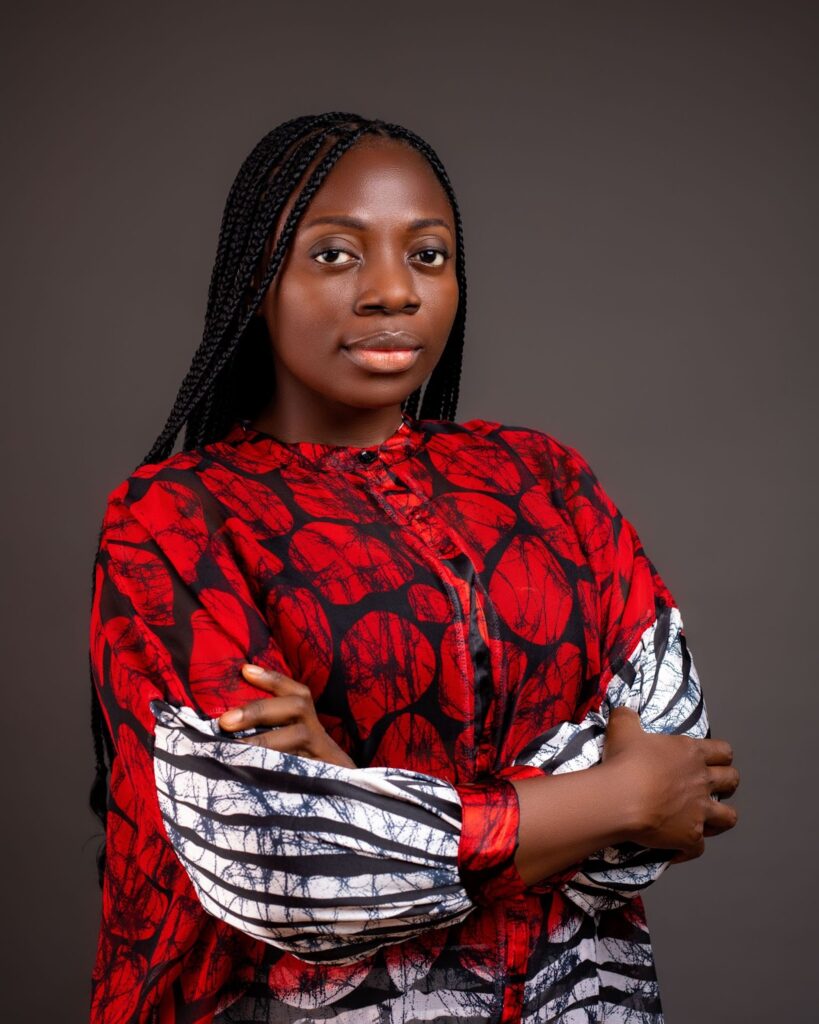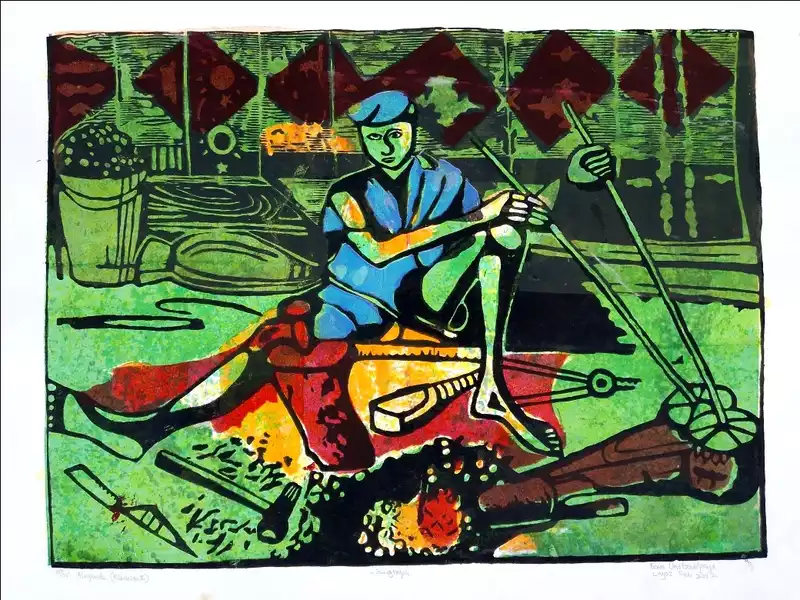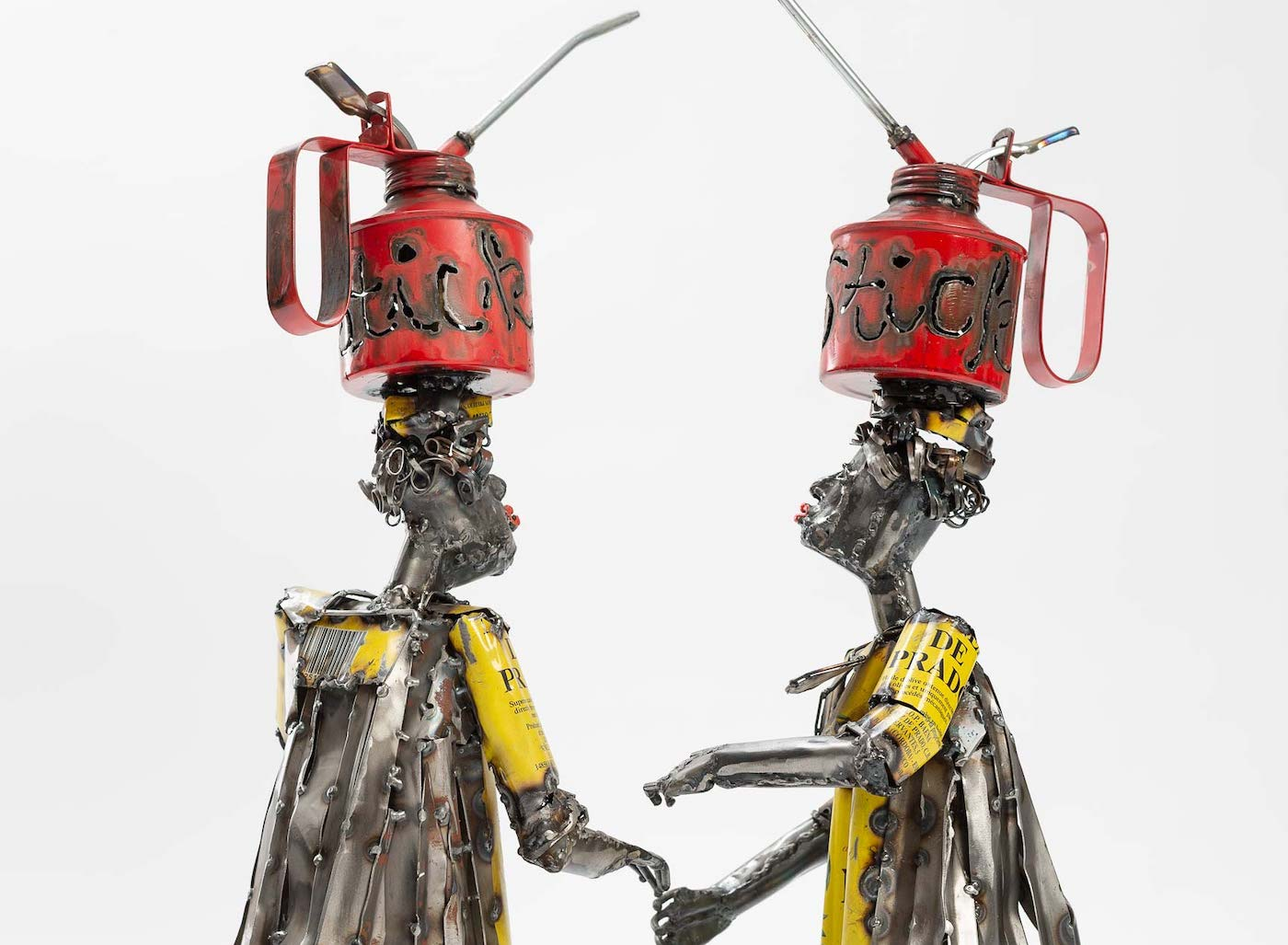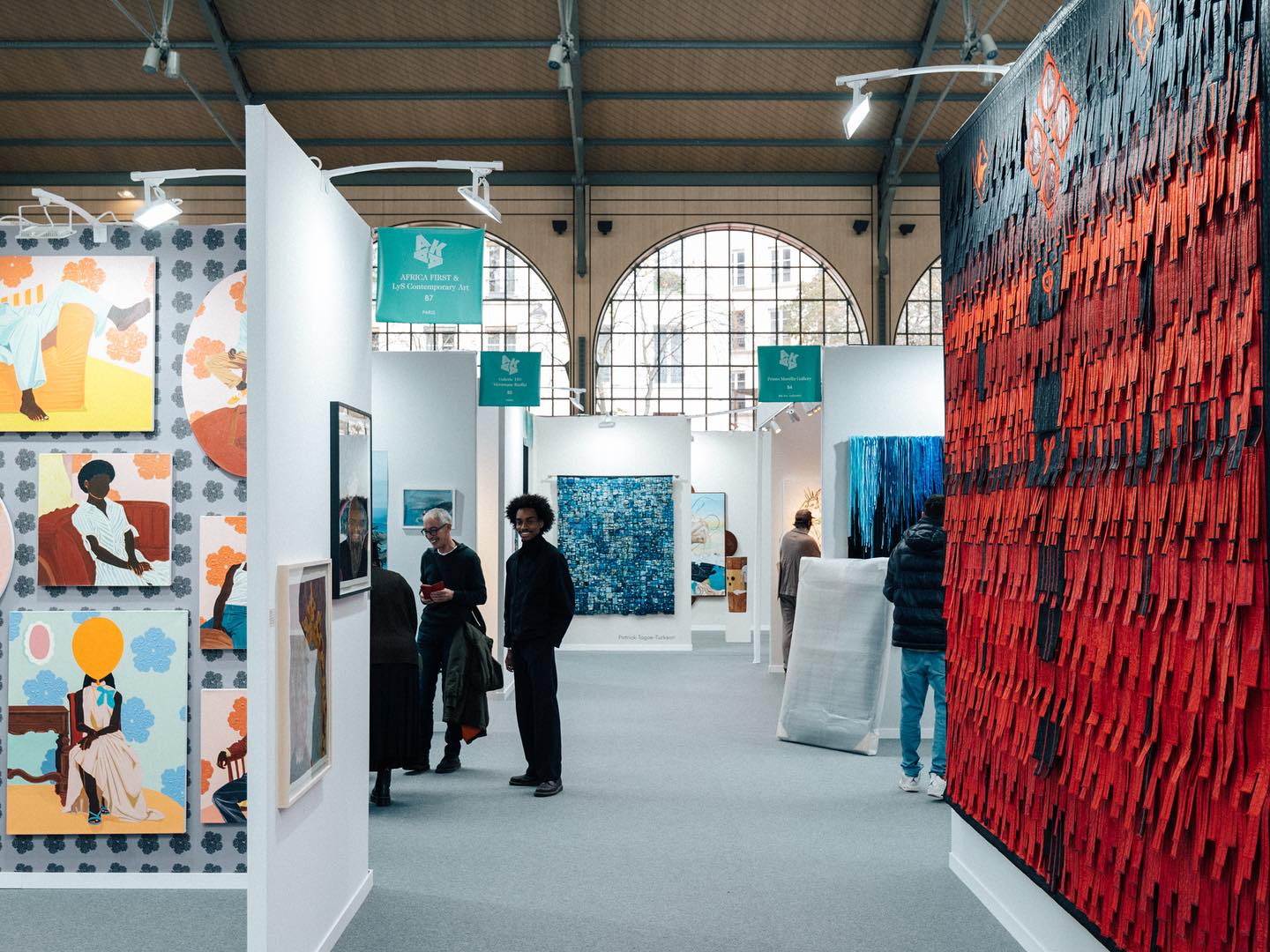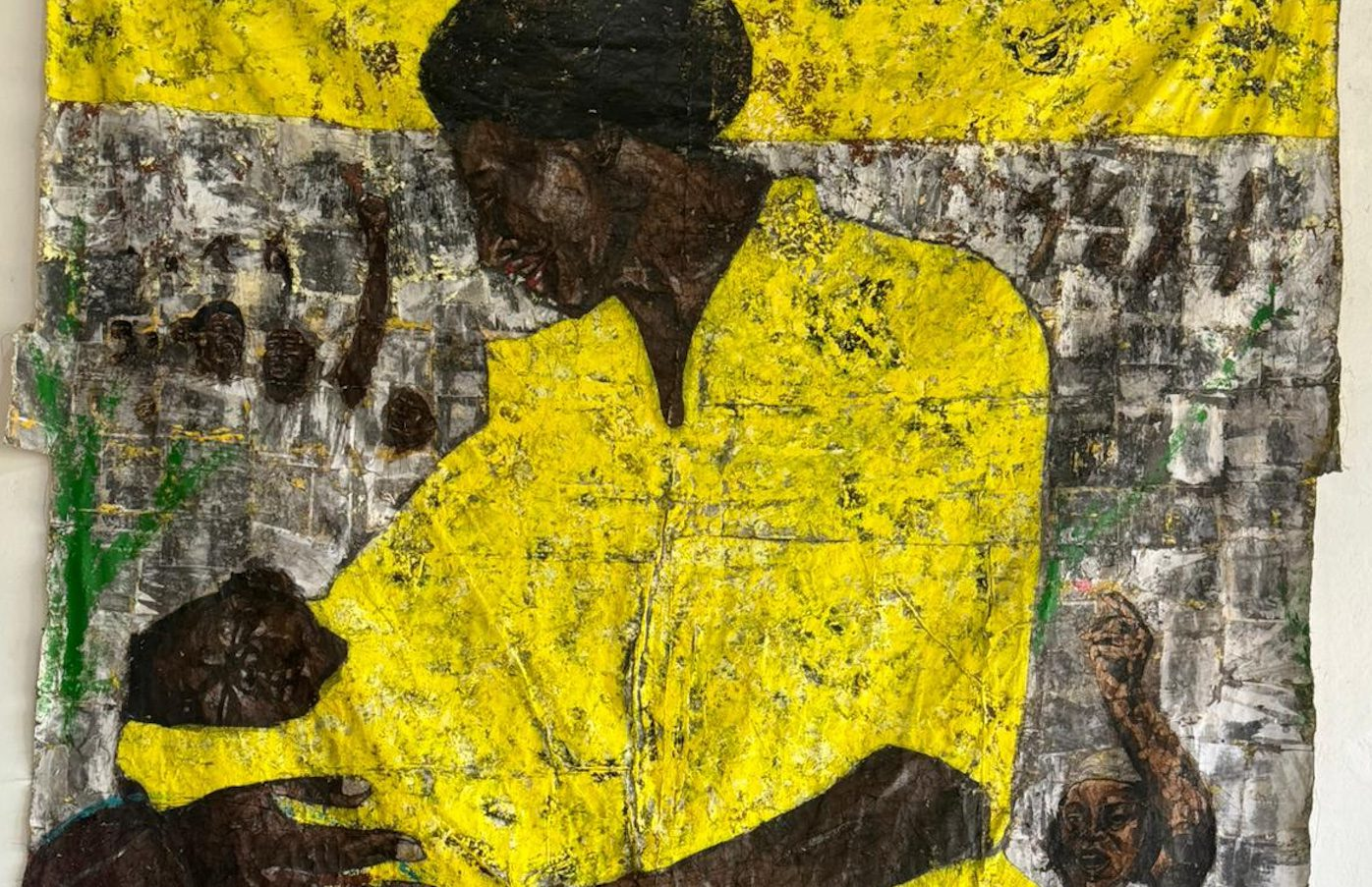Ejiro Fenegal (b. 1991) is a visual artist specializing in figurative and portrait sculptures. Born and raised in Ughelli, Delta State, her practice is centered on the representation of female figures. In her work, women are portrayed as powerful symbols of strength and beauty, delving into the complexities of the human condition which ensnares the mind characterized by fear, doubt, and hate. Her process involves working with clay to model the form of her subjects, then mould making and casting with resin, marble dust, and stone particles. She then applies polychromatic patinas to accentuate the expressive features of her subjects.

Ejiro Fenegal attended the School Of Arts, Design and Printing, Yaba College of Technology where she graduated with a Higher National Diploma in Sculpture in 2019. She works in her Lagos studio and has participated in several projects such as the production of the Zorya Statue at the Logoon Restaurant, Lagos, (2020), and a sculpture on combat soldiers in collaboration with sculptor Ato Arinze, which was commissioned by the office of the National Security Adviser, Abuja (2022). She has taken part in other art projects and group exhibitions, including the ‘Small and Iconic’ exhibition in March 2023, ‘Journeys’, organized by SMO Contemporary Art in July 2023, and Art X Lagos in November 2023.
In a conversation with Omenai, Fenegal talks about her subjects, her sculpting process, and how vital art education was for her.

Courtesy of the artist.
You moved to Lagos to further your art education at the Yaba College of Technology. What are some of the challenges you have faced as an emerging artist?
Ejiro Fenegal: I have faced so many obstacles that I now believe were designed to prepare me for the person I am to become. There was the initial struggle to get funds to purchase materials and see myself through art school. This got me involved in so many side hustles, like cake designing and caricature drawing at events. Then there was the lack of studio space, as I wanted a conducive and spacious environment to practice sculpture. However, thanks to God, these challenges are now in the past.
I understand that you majored in Sculpting at the university. But before sculpting, did you work with other mediums?
EF: Yes, I have worked with mediums such as painting, drawing, and caricature all in between sculpting because sculpture is what I have always had a passion for, right from childhood, even long before I went to study it.
What year did you finish school?
EF: 2019.

Courtesy of the artist.
Since you left the university, what have you done? Just how much does having an art education help with your current artistic practice?
EF: Since my graduation, I have been involved in lots of freelance practices. I have done private tutorials with kids and taken both personal and collaborative sculpture commissions. I will say that my educational background from Yaba College of Technology helped shape my practice in diverse ways through the courses I took back then, particularly courses such as figure modeling, where we have the models pose right before us and then we sculpt live.
Peju Alatise, in an interview with Juliet Rix for Studio International, said “If you listen to materials, they tell you what they want to become. If you don’t listen, they can rebel against you. You have to understand them to get what you want.” Do you agree? What materials do you use in your work and how did you decide on the materials used?
EF: Yes, I agree. First of all, before I chose my materials, I had the understanding that we could work together. I can boldly say that my materials obey me. In the same way, some artists can manipulate metal, wood, fabric, or plastic to create their desired form. That is why I love to work with clay because it feels malleable in my hand, makes my ideas possible, and gives me a sense of connectivity with the creator [God] and the earth, but it doesn’t end there. I also use the plaster of Paris and bonded stone in mould-making.

Courtesy of the artist.
Are there any artists, living or dead, that influence the style and techniques you work with?
EF: Late Ben Enwonwu, Abayomi Barber and Ato Arinze.
What is your practice focused on and what are the central themes you continue to explore in your work?
EF: My practice is focused on capturing the essence of my subjects, who are mostly women. In doing so, I free my mind from every constraining emotion and I also want my viewers to experience this when they come in contact with my work. The themes I will continue to explore are the strength and beauty of the female form, the Nigerian cultural heritage, African identity, human consciousness, freedom, and self-confidence.

Courtesy of the artist.
This year, your work has been featured in several group exhibitions in galleries and at art fairs, especially Art X Lagos 2023. What was that experience like for you?
EF: The experience was an amazing one for me, I must say. It was a milestone achievement for me.
What do you look forward to achieving in 2024?
EF: I have high expectations from myself and the art community. I look forward to improving my techniques to create more inspiring works and expanding my reach across the globe.
Iyanuoluwa Adenle is a Nigerian art writer, essayist, and poet based in Lagos. She is currently the head writer at Omenai. Adenle has contributed to a number of art publications, including Tender Photo, Art News Africa, Pavillon 54, and Omenai.

